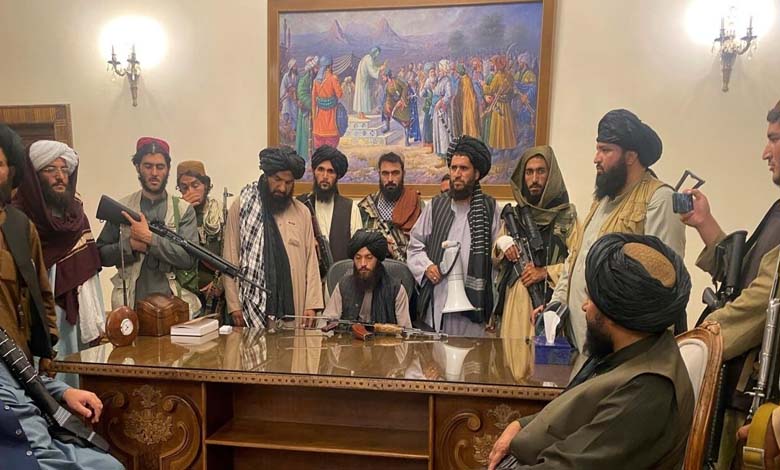After 3 Years in Power, Has the Taliban Achieved Diplomatic Success?

Despite not receiving recognition from any country, the Taliban government has achieved some diplomatic successes over the past three years, while tightening its grip internally with a strict, even extreme, application of Islamic Sharia law.
-
Russia Invites the Taliban to Participate in an Economic Forum
-
First ISIS Attack on Foreign Tourists Since the Taliban’s Return
The most notable development is the Taliban‘s participation, for the first time, in the Doha talks at the end of June, to discuss economic support and drug control with the international community, according to “Middle East Online.”
The government spokesperson, Zabihullah Mujahid, who led the Afghan delegation to Qatar, welcomed “Kabul’s exit from isolation,” adding, “We support positive meetings provided the situation in Afghanistan is taken into account.”
After complex negotiations, Kabul secured the approval of twenty countries and the United Nations – which criticizes the “gender apartheid” in Afghanistan – not to invite any representative of civil society, especially women, to the third round of Doha talks.
Shortly after reclaiming power in Kabul on August 15, 2021, the Taliban sent a clear message by enforcing the covering of faces in beauty salons, barber shops, or on billboards with paint. They also imposed strict laws on women, derived from their rigid interpretation of Sharia law.
For Obaidullah Baheer, grandson of former warlord Gulbuddin Hekmatyar, “the Doha approach was smart.” He said, “It’s not the international community that will solve the women’s issue,” referring to the exclusion of women from education and parts of the workforce, adding, “But it can create” a conducive environment and “economic recovery can bring some political openness.”
-
UN Report Documents Violations by the Taliban
-
Escalating tension between Iran and the Taliban… What is the truth behind Afghan tanks heading towards the border?
Despite the closure of Western embassies in Kabul for three years, China, Russia, Iran, Pakistan, and Central Asian republics (excluding Tajikistan) have established actual diplomatic relations with Kabul, while Moscow is preparing to remove the Taliban from its list of terrorist organizations, and Beijing has appointed its first ambassador to Kabul in three years.
Last Thursday, the United Nations expressed concern about the activities of the regional branch of ISIS, which represents “the biggest external terrorist threat” in Europe, and condemned the “climate of fear” instilled by the Ministry for the Promotion of Virtue and Prevention of Vice in the Islamic Emirate, where any public protest seems impossible.
-
International demands for the Taliban to stop the punishments of flogging, execution and stoning
-
Compulsory dress code for women is a shared culture among extremist organizations… Iran and the Taliban as an example
In such a climate, women who protested at the beginning of the Taliban‘s rule against the initial repressive measures and were beaten or arrested, now only protest symbolically behind the walls of their homes.












